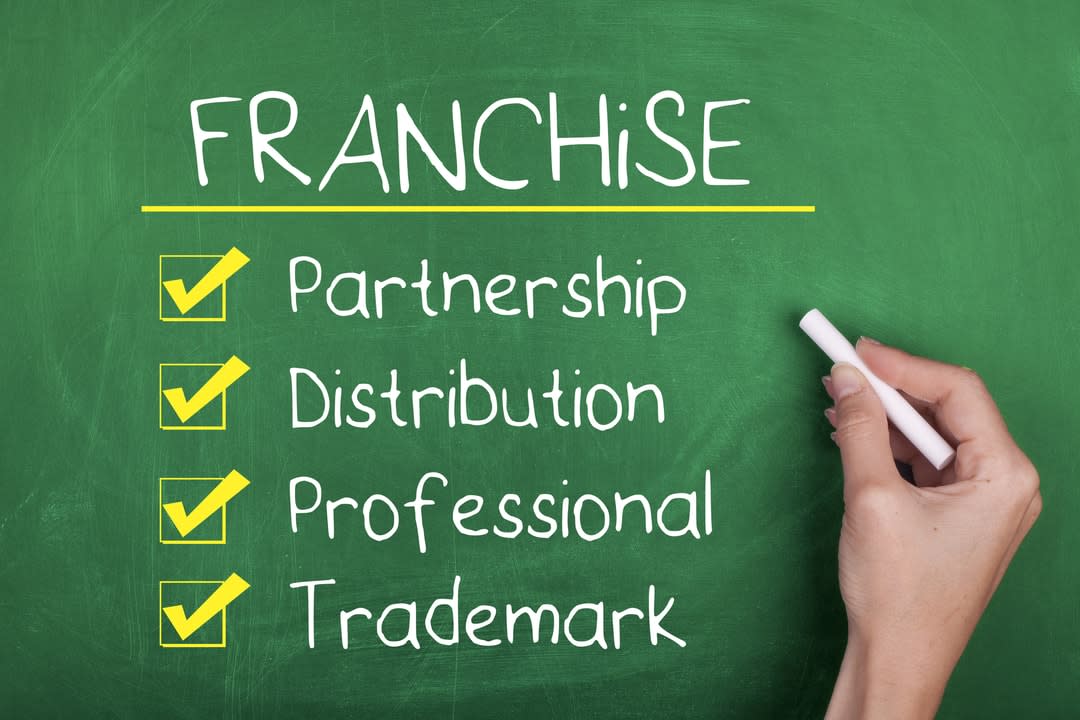
According to the 2016 Franchising Taskforce Issues Paper, there were more than 1300 franchisors operating in Australia and around 97,000 franchisees. These franchisees are predominately small and family businesses.
The franchises have a sales turnover of $182 billion (including motor vehicle and fuel retail sales) and the sector employs more than 500,000 people. Ninety per cent of these franchise brands originated in Australia, as per the Franchising in Australia report 2016.
Today, the website Franchisebusiness lists more than 180-250 different franchise brands with franchising opportunities in Australia.
There's considerable evidence to suggest that franchises are more successful than independent businesses. A successful franchise has benefited many independent entrepreneurs with a tried and tested business model. This is true for both global and Australian brands that have built extensive franchise networks. A franchise brand that customers love, along with a healthy relationship between the franchisor and their franchisees, can be a recipe for great success.

When franchisees sign up for the franchisor’s business model, they do so to reduce the business risk of managing an independent business. However, in doing so the franchisees add franchise risk.
Franchisees count on the franchisors to grow and protect the brand. The franchisors rely on the franchisees to deliver on the brand promise. This creates the need for a symbiotic relationship between the franchisor and the franchisee that benefits both parties.
Things can go wrong
In the past few years, the franchise model in Australia has been going through significant challenges, mainly because of worker underpayments, abuse of power by franchisors, lack of power of franchisees, unprofitable franchisees, unfair and one-sided franchise contracts, and franchisor misrepresentation in the franchise disclosure documents.
The parliamentary committee examining the franchising sector released the Fairness in Franchising report in March 2019. This report was a comprehensive examination of franchising in Australia.
The committee received more than 400 submissions, of which more than 80 per cent were from franchisees. Of the 300-plus submissions from franchisees, more than “40 per cent of submissions related to Retail Food Group (RFG), Foodco, Domino’s, and Caltex. Five additional franchise systems identified by the franchisees were: Cold Rock ice-cream, 7-Eleven, Autobarm, Craveable Brands, and Pizza Hut”.
Almost 65 per cent of the franchisee complaints were on 10 franchise brands in Australia.
In spite of 300-plus franchisee submissions, more than half were confidential, as the franchisees feared retaliation from the franchisor.
One crucial issue franchisees identified was that franchisors made significant and frequent changes to the business model.
Innovate to succeed
Like all businesses, franchising also relies on innovation to stay current and appeal to changing customer preferences. These innovations in the food services business could include simple changes to the menu or complete outlet refurbishments, the costs of which can be up to $200,000 per outlet.
Franchisees also expect their franchisors to develop new and innovative ideas. However, these innovations can be disruptive to the franchisee.
The franchisee is responsible for the unexpected and unplanned changes to the business and the additional costs associated with them. The franchisee has to invest in staff training, invest in capital equipment, and more.

Franchise innovation checklist
When managing innovations, there are six things that franchisors and franchisees can do manage the change more effectively:
Testing
The franchisor should test the ideas before imposing them on all the franchisees. Testing any business idea for its effectiveness is crucial. But in franchising, the franchisees bear disproportionately higher cost and risk associated with changes. The franchisor should pilot the change in company-owned stores. The franchisors should also test the change in a handful of franchisees. These efforts will help the franchisee iron out the kinks and understand the franchisees' pain associated with the change.
Evidence to franchisees
Franchisors should be able to provide evidence of the benefits of the innovation to the individual franchisees. In many cases, the franchisor is counting on the franchisee to take the leap of faith and make the required financial investments. Recently, Subway franchisees have lamented about the need to invest in coffee machines and panini presses. Did Subway provide adequate evidence of the success of new menu items such as coffee and sandwiches to individual franchisees?
Number of changes
Sometimes, to manage ailing franchise systems, the franchisor introduces various changes at the same time. Taking various drastic steps may not help solve the problems of an ailing system. Franchisors should not engage in consumer testing at the expense of the franchisees.
Consultations
Franchisors should consult with franchisee associations, or at least a large proportion of franchisees, before introducing changes to the system. The consultative process will help develop the idea and ensure buy-in from the franchisees. Unilateral changes by the franchisors can be expensive to the system.
Cost and revenue sharing
The franchisor should consider sharing both the additional costs and additional revenue with the franchisees. Cost-sharing with the franchisees puts the skin in the game for the franchisors.
Localisation
Standardisation is the cornerstone of franchising. However, many franchises have been successful in international markets by adapting to local needs. For food services in Australia, franchises should consider localisation, even in the domestic market. This localisation recognises the local needs of the consumers and the franchisees.
What next?
Franchise systems should develop processes that consider the risk and reward of innovations to individual franchisees.
Franchisors should focus on the success of the individual franchisees and not just the viability of the full system.
Both the parliamentary committee and the taskforce acknowledge that not all franchise businesses will succeed and that they could fail because of factors that are beyond the control of the franchisor or franchisee. However, having the right governance processes to introduce innovations will ensure greater success for the franchisees and their franchisors.
For franchisees, franchising is also fraught with risk. Understanding the risks of franchising is essential. Franchisees should conduct thorough due diligence before signing on the dotted line.
Franchising is a crucial sector for the Australian economy. Action needs to be taken to support the growth of franchisees, that in turn benefits the franchisor.
This is the right time for the Franchise Council of Australia, the Australian Association of Franchisees and various successful franchise brands, franchisors, and franchisees to collectively turn the tide and make the sector work for everyone.





